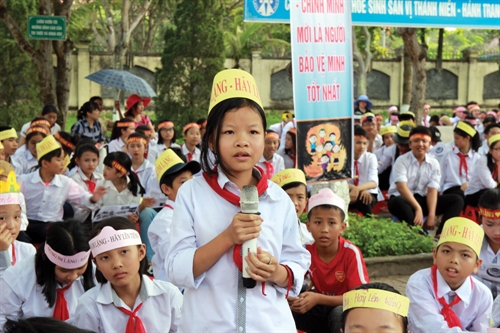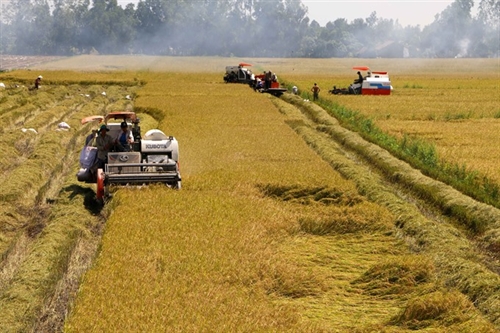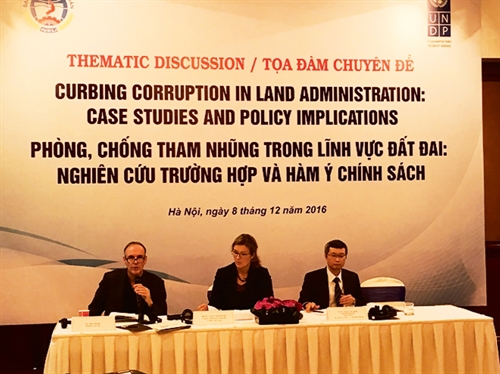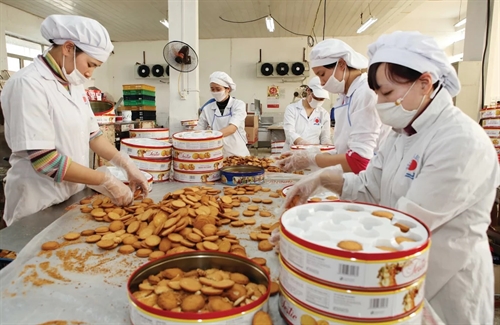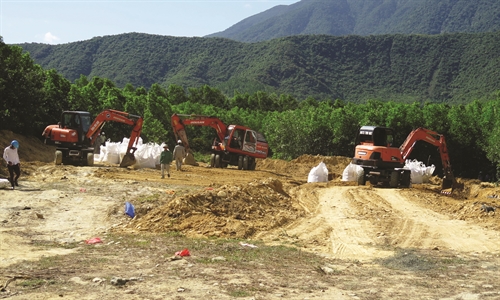The Ministry of Culture, Sports and Tourism (MoCST) has recently unveiled a draft regulation to put in order the organization of anniversaries, which have become rampant in the past years.
According to the MoCST’s Grassroots Culture Department, there are now around 200 founding days and traditional days of ministries, sectors and localities, including seven national anniversaries, 87 founding days and 121 traditional days of ministries, sectors and localities.
Not only the number of anniversaries tended to increase in the recent years, Trinh Thi Thuy, director of the Grassroots Culture Department, told the Nguoi Lao Dong (the Laborer) online, many provinces held their founding anniversaries lavishly with live television broadcast and performances of hundreds of singers, artists and actors. Thousands of guests were invited to receive flowers and gifts and attend banquets, which gobbled up tens of billion dongs.
In 2016, Vinh Phuc northern province spent up to 65 billion dongs (USD 2.9 million) on gifts for guests of its 20th re-establishment anniversary.
Earlier, Vietnam National Coal-Mineral Industries Holding Corporation Limited asked its affiliated units to buy commemorative badges worth of tens of billion dongs for their workers on the occasion of the group’s 80th traditional anniversary.
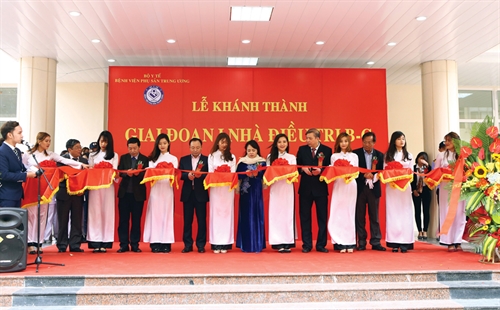 |
| A ribbon-cutting ceremony to inaugurate treatment houses of the National Hospital of Obstetrics__Photo: Hoang Hung/VNA |
Dr. Nguyen Van Vinh, former deputy director of the Social Development Research Institute, agreed ground-breaking and inauguration ceremonies and anniversaries were so expensive. With thousands of state agencies and enterprises, the number of ceremonies and anniversaries was huge, causing great wastefulness, let alone corruption, Vinh said.
Le Nhu Tien, former chairman of the National Assembly’s Committee of Culture, Education, Youth, Teenager and Children Affairs agreed that the issuance of the regulation was necessary, saying the best way was to turn anniversaries into practical production and working activities rather than gathering for feasts.
Waste in anniversaries was even addressed in the report of the National Assembly’s Finance and Budget Committee appraising the 2016 government report on thrift practice and waste combat presented last month to the Standing Committee of the National Assembly.
According to the draft decree, anniversaries must be held in a formal, economical and effective manner, avoiding show-off and wastefulness.
The draft lists eight national holidays and anniversaries, including the Lunar New Year Festival (the first of the lunar year); Party Foundation Day (February 3, 1930); Death Anniversary of Hung Kings (the 10th of the third lunar month); Victory Day (April 30, 1975); Dien Bien Phu Victory Day (May 7, 1954); Birth Date of late President Ho Chi Minh (May 19, 1890); August Revolution Day (August 19, 1945); and National Day (September 2, 1945).
It prohibits the celebration of founding or traditional days of ministries, sectors and localities which have not been recognized by the Prime Minister, ministers or chairpersons of provincial People’s Committees.
The draft specifies formalities as well as decorations for holding anniversaries, under which giving presents, symbols and logos as well as holding banquets in anniversaries are prohibited, except for the August Revolution and National Day anniversaries. Marches and parades are also not permitted on the anniversaries of ministries and sectors unless they are approved by competent authorities if really necessary.
Regarding the celebration of birth dates of Party and State leaders, death anniversaries of historical figures and national celebrities, and founding days and traditional days of ministries, sectors, mass organizations, economic organizations, people’s armed forces and provinces and centrally run cities, the draft says these anniversaries would be held only on a ten-year basis. Particularly for birthdates of leaders, the first anniversary will be held on their 100th birthdates and the following would be held every ten years.
The draft decree also sets limits on the number of guests to ceremonies, 300 for an indoor ceremony and 500 for an outdoor one. Only one of the four top leaders, namely the Party General Secretary, the President, the Prime Minister, and the Chairperson of the National Assembly, would attend the founding ceremony of a province, the draft says.- (VLLF)
